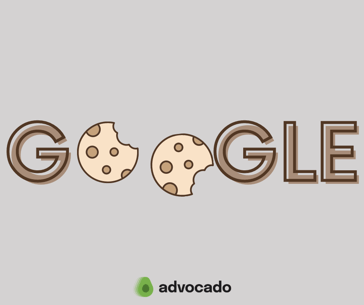 [ST. LOUIS, MO]---When Google announced it had plans to dissolve Third-party cookies by 2022, consumers rejoiced. No longer would those nagging cookie crumbs collecting data have access to preying over the shoulders of internet users and then selling this personal information to the highest bidder is finally over. But, that excitement is totally misdirected.
[ST. LOUIS, MO]---When Google announced it had plans to dissolve Third-party cookies by 2022, consumers rejoiced. No longer would those nagging cookie crumbs collecting data have access to preying over the shoulders of internet users and then selling this personal information to the highest bidder is finally over. But, that excitement is totally misdirected.
As mentioned this past spring, Advocado co-founder and CEO Brian Handrigan wrote, “The Google announcement that it was disabling the use of third party cookies to protect consumer privacy, was somewhat of a "wolf in sheep's clothing" approach by the largest digital advertising vendor on the planet."
While consumers will no longer have to answer to the data intrusions these cookies represent, they will however, be highly encouraged to allow Google to track if they are using a Chrome browser by connecting any one of their Google accounts (gmail, apps, etc) to Chrome. Google already knows who consumers are when they’re logged into Gmail (where they can read their email) or other Google products like their Chrome browser, and then can build what Google describes as privacy-first cohorts because consumers give Google the right to track them and use their data by accepting the terms of service agreements connected to each product of Google’s that they use.
That fallout from this move to “privacy first” isn’t looking good either.
"The losers are obviously competitors to the Google Ad products, but more importantly, advertisers and consumers will ultimately be the real losers,” says Handrigan. “Consumers will receive less relevant ads / will have to pay for online services that were once free , and advertisers will have more ad waste and campaign inefficiency which will ultimately be passed on to the consumer in the form of higher prices."
Advertisers in general are the most directly impacted by Google’s half-baked solution. Obviously, advertisers and consumers do not exist solely in the Google and Facebook universe, so isolating them only leads to inevitable chaos in the digital ecosystem. In turn, advertisers have an even harder time of connecting with consumers. And when these systems raise the height of their walled gardens, they force choices by advertisers to favor one platform over another and that doesn’t help promote choice or even consumer interest (and don’t think we’ve forgotten about you Apple and your isolation of iOS users from apps and advertisers - you’re just as guilty as Google here).
“Google’s move is definitely going to be a major challenge for AdTech players that have relied on selling audiences based on an individual's behavior,” says Handrigan. “And this may not be such a bad thing since many of those platforms created very little actual value other than combining the tracking data of other players. But, for those companies that have built their platforms from the start to respect consumer privacy, put the data management function in the hands of the advertiser, AND offer more organic behavior-based solutions, the opportunities are immense.”
So what do you do when the cookie crumbles? First, get started before they are eliminated. Advertisers need to begin weaning themselves off third-party data now and turn toward building first-party data repositories that go beyond digital journeys and include cross-platform engagement.
At Advocado, we started tracking a media that had no cookies at all (broadcast TV), so cookies have never been part of our insights into the consumer journey. We use signals from both the offline and online worlds to understand how users choose to engage digitally - across search, social and shopping in real-time and physically via sales and foot traffic. Advertisers can then use this data for both enhanced campaign planning and training these new cohort based audiences within the major players' walled gardens. The results for all are increased campaign effectiveness, more relevant messaging to consumers, data-proven ROI and true omnichannel attribution measurement.
The time to make the switch from an online world fueled by cookies, to one where advertisers need to look for other solutions is coming fast and the time is now to act. With Google moving the finish line for advertisers to get control of their data, it begs one enormous question: How long before you reach out to your friends at Advocado?
We’ve existed as a company without cookies since our beginning. Let us show you how.